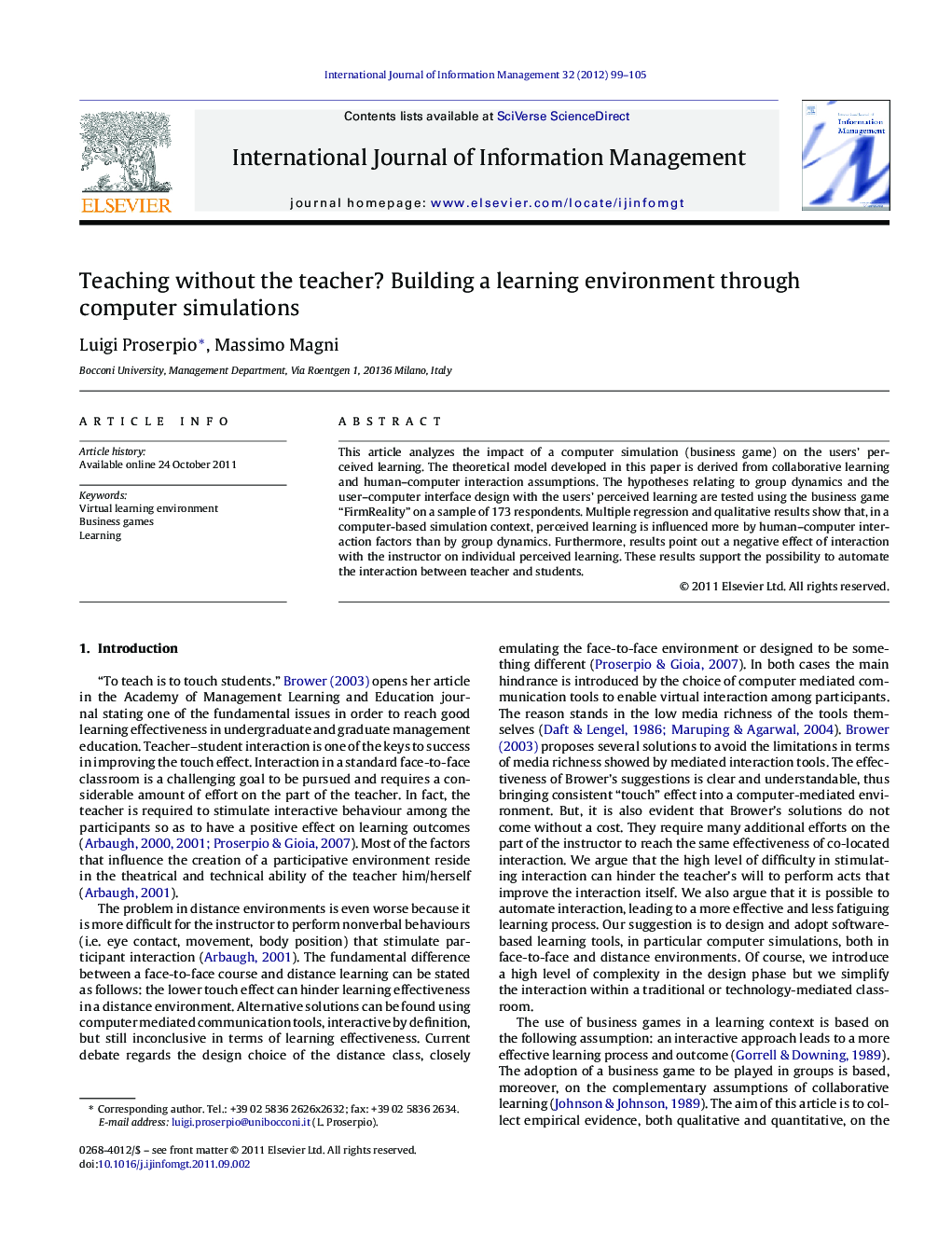| Article ID | Journal | Published Year | Pages | File Type |
|---|---|---|---|---|
| 1026019 | International Journal of Information Management | 2012 | 7 Pages |
This article analyzes the impact of a computer simulation (business game) on the users’ perceived learning. The theoretical model developed in this paper is derived from collaborative learning and human–computer interaction assumptions. The hypotheses relating to group dynamics and the user–computer interface design with the users’ perceived learning are tested using the business game “FirmReality” on a sample of 173 respondents. Multiple regression and qualitative results show that, in a computer-based simulation context, perceived learning is influenced more by human–computer interaction factors than by group dynamics. Furthermore, results point out a negative effect of interaction with the instructor on individual perceived learning. These results support the possibility to automate the interaction between teacher and students.
► We analyze the impact computer business games on individual learning. ► We take into account learning processes in a team based setting. ► We examine how team processes, technology interaction and instructor's role shape individual learning. ► We find that individual learning mostly depends from the technology design and the ability to integrate information within the team.
